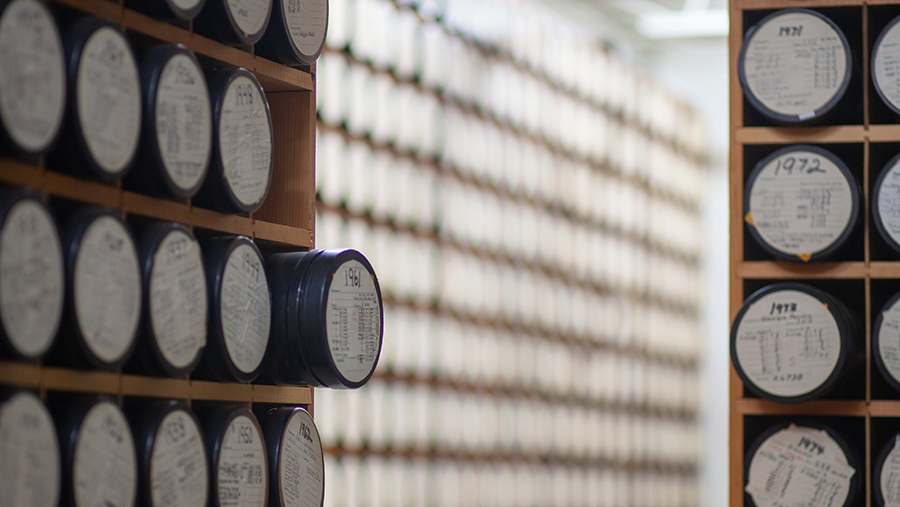
The View from the Sky
James W. Sewall Company donates one million aerial photos to Fogler Library
On the first floor of the James W. Sewall Company in Old Town, Maine, a green door made of heavy steel bares the sign “Film Library.” Through the door, a winding staircase leads to a basement where rows and rows of handmade shelving hold hundreds of film canisters, each with its own individual cubby. Those shelves held the bulk of Sewall’s aerial photography archive, a collection of 1 million photographs taken over the course of 65 years.
In November of 2019, Sewall donated those photographs to Fogler Library.
“In turning over these archival materials, the James W. Sewall Company is essentially entrusting its DNA to the University of Maine,” says George N. Campbell, Jr., Sewall’s President. “Under Joe Sewall, the company was an early adopter of aerial photography in this part of the country. Not only will Fogler Library take excellent care of this important part of Sewall’s—and Maine’s—heritage, but will make it widely available to researchers as well. We could not be more pleased.”
Founded in 1880, Sewall began offering aerial photography services in 1948. The photo archive they produced captures aerial views of nearly every part of Maine, as well as various locations in New England, Alaska, Canada, and the southern and central U.S.
With the archive, Fogler Library will be able to provide a valuable resource to researchers across many disciplines.
“[The Sewall archive] will present an incredibly exciting opportunity for faculty, staff and students to work with a truly unique resource,” said Daniel Hayes, assistant professor in the School of Forest Resources at UMaine. “Maine’s forest has been in constant flux over the course of history, including the changing composition of tree species, insect outbreaks, land-use change, shifting management practices, and climate change. The [archive] represents an unprecedented record of the continuing evolution of Maine’s forest landscape.”
Currently, Fogler Library is working to relocate the film canisters to its storage facility for processing. Organizing and cataloging the vast collection will take many months, and the materials will not be available for research requests until late 2020. When the collection is open for public requests, the archive will offer researchers an unmatched opportunity to study the changing landscapes of the northeast.
—
This story was originally featured in the 2019 Raymond H. Fogler Library Magazine.
